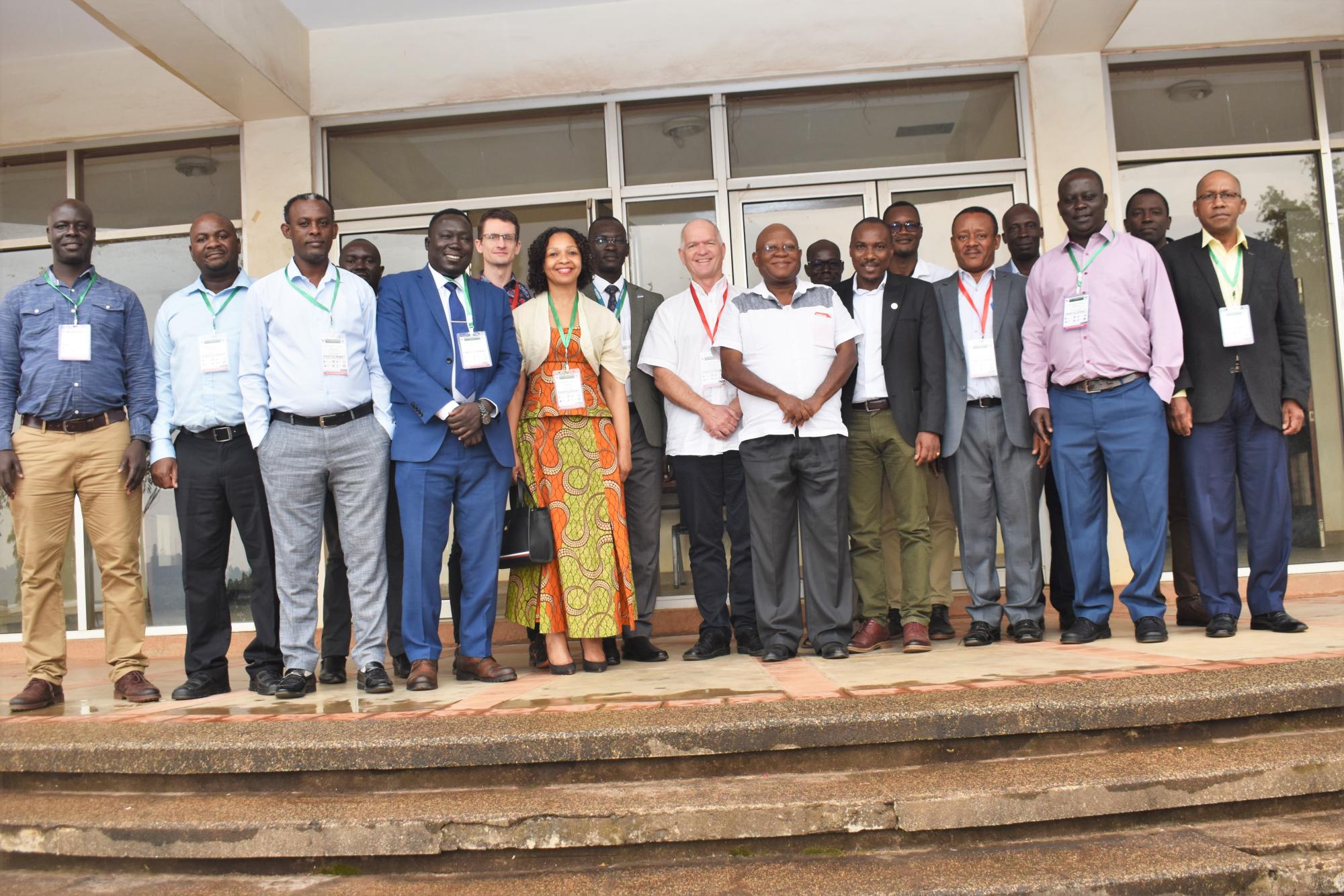Makerere University College of Natural Sciences (CoNAS) through the Department of Physics is hosting the 2023 Annual Meeting for the Energy Technology Network (EnergyNet) Project. The three-day meeting taking place at the School of Food Technology, Nutrition and Bio-Engineering is being attended by partners from the Norwegian University of Science and Technology (NTNU), University of Dar es Salaam (Tanzania), Makerere University (Uganda), Mekelle University (Ethiopia), Addis Ababa University (Ethiopia) and Eduardo Mondlane University (Mozambique). It was officially opened by the Principal, CoNAS, Prof. Winston Tumps Ireeta on 9th January 2023.
EnergyNet is a six-year (2021-2026) project supported by the Norwegian Agency for Development Cooperation (NORAD) under NORHED II. The project is a network of African universities collaborating on education and research in Energy Technology. Prof. Ole Jorgen Nydal from NTNU is the main coordinator of the Project. At Makerere University, the project is coordinated by Dr Nyeinga Karidewa, Lecturer in the Department of Physics.
Objectives of the project
i) To increase the quality of MSc/PhD educational programmes in Renewable Energy by training PhDs and MSc students in energy
ii) Conduct research in small scale renewable energy systems
iii) Bring results from the laboratory to the society
iv) Networking
Purpose of the project workshop
The workshop was convened to share reports on the progress of the project at each of the partner institutions, complete the project activity report for 2022, and to develop a work plan and budget for 2023. The workshop featured several presentations covering both technical and social aspects of the research in energy.

Research areas by the partner institutions under the project
Makerere University
- Solar thermal energy storage systems for off grid cooking applications
- Modelling and simulating back heating sources and multiple cookers integrated with heat storage
Dar es Saalam University (Tanzania)
- Solar refrigeration
- Mini hydropower – using pumps
Eduardo Mondlane University (Mozambique)
- Solar cooker technologies acceptance among pastoral communities in disaster areas
- Solar thermal technology – charging by evacuated tubes
Addis Ababa University
The AAiT team at Addis Ababa University is working with two PhDs in thematic areas of refrigeration and solar thermal cooking. The first system is used for milk cooling and pasteurization with potential application for dairy farmers. The second one focuses on design, development, and experimental investigation of photovoltaic based institutional injera baking system with phase change materials with potential application in Universities, correction centres and hospitals where injera is baked in mass. Abdulkadir Aman Hassen (PhD) is the project coordinator from AAU. Other coordinators are; Boaventura Cuamba, Eduardo Mondlane University (Mozambique); Joseph Kihedu, University of Dar es Salaam; Mulu Bayray, Mekelle University; Ishmael B.M. Kosamu, University of Malawi, and Tito Achire, Juba University.
During the workshop, PhD students on the project presented progress reports and plans for 2023. Mr. Richard Ochaya from UNHCR presented energy challenges faced in refugee camps in Uganda, and the need to work closely with universities to find sustainable solutions.
Expected output
The partner universities have a long history of collaboration on research and education in renewable energy. The experiences and the results from the group (programmes and research), will be shared as support for capacity building at the University of Malawi and the University of Juba (South Sudan) which are at an earlier stage on the research capacity path.
The research tasks have been solution oriented, with the exploration of new and innovative technical solutions for small scale energy components and systems related to hydro and wind power, solar and bio energy for cooking and solar refrigeration technology. Focus is on thermal energy solutions (heating, cooling, cooking) and the integration of heat batteries with electrical batteries in micro grid systems. Emphasis is on qualifying and implementing new technical solutions emerging from university research, in collaboration with relevant stakeholders. The educational part includes a new multidisciplinary PhD programme combining technical, socioeconomic and environmental studies. The quality of the existing master programmes will be enhanced by joint curriculum reviews, improvement of research based teaching and migration towards more digital teaching methods.

